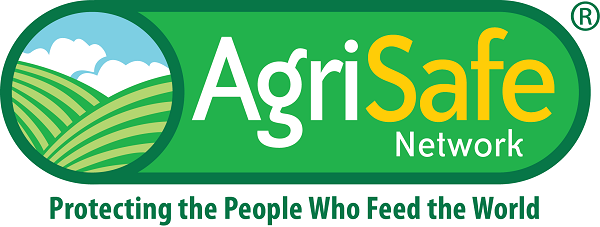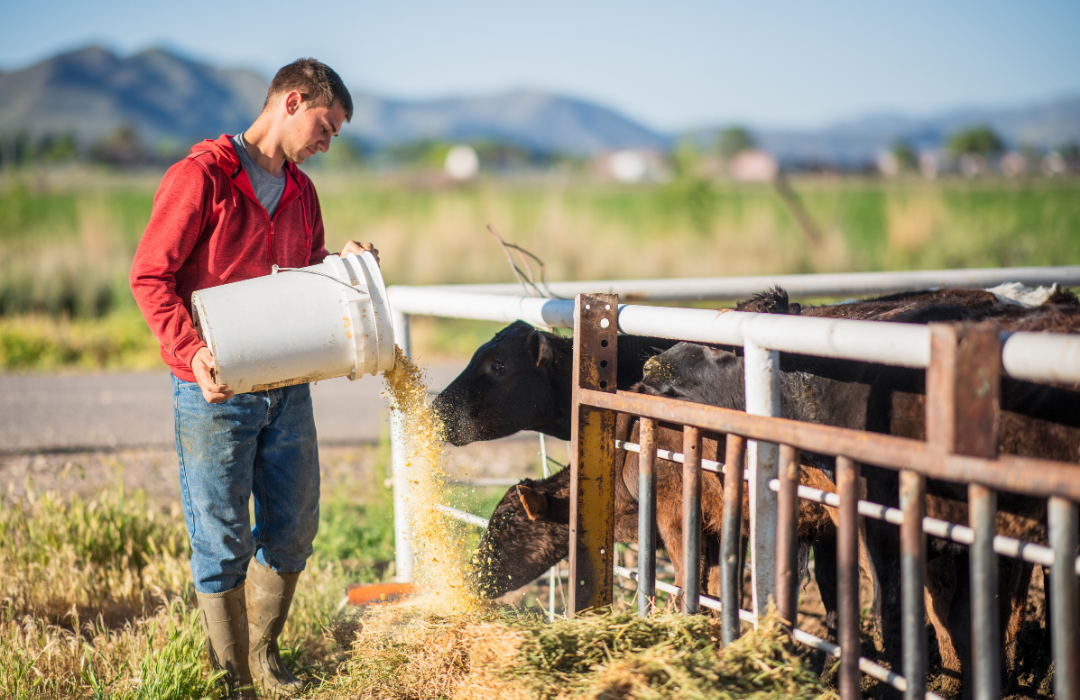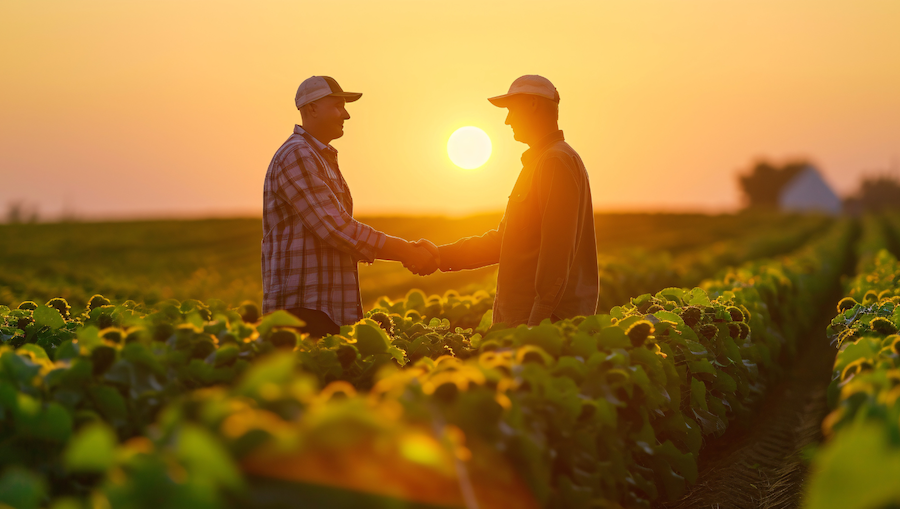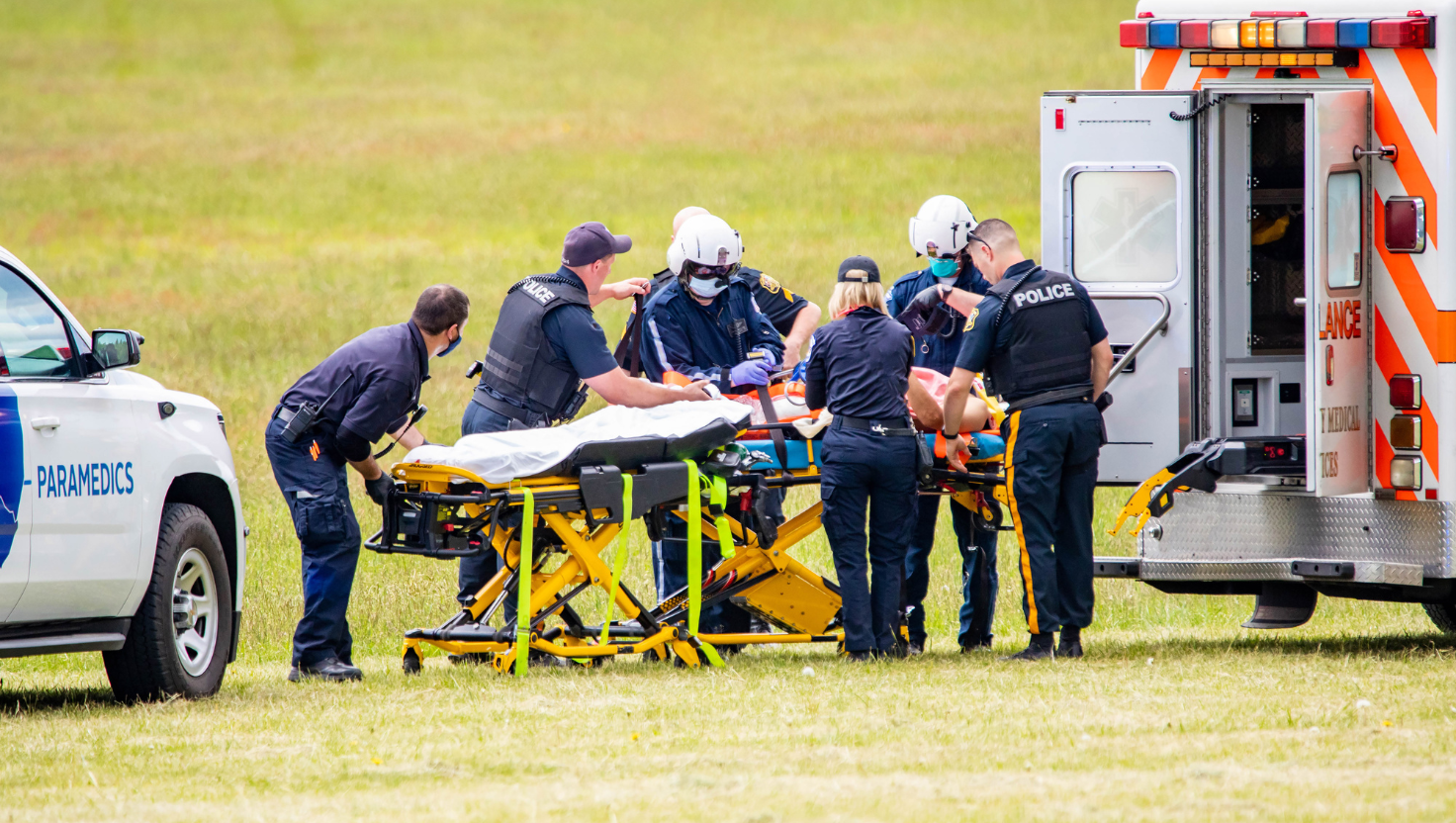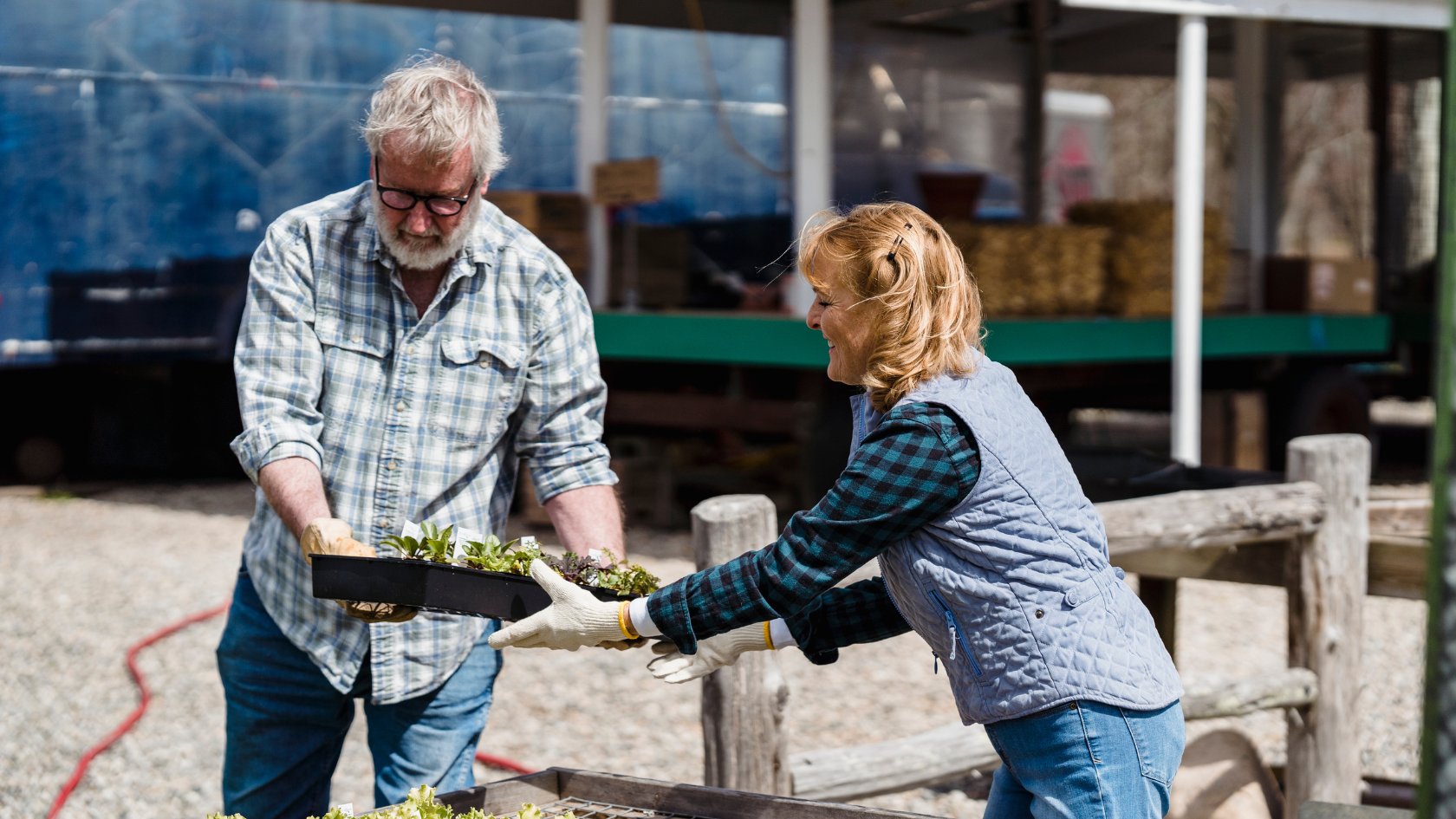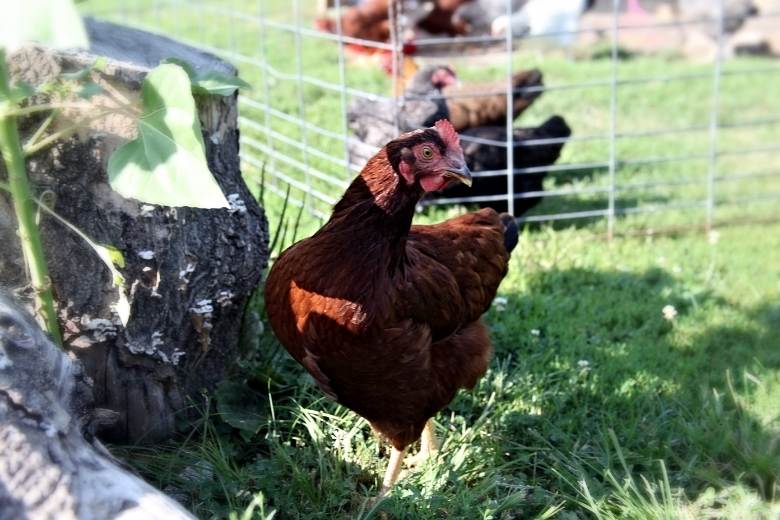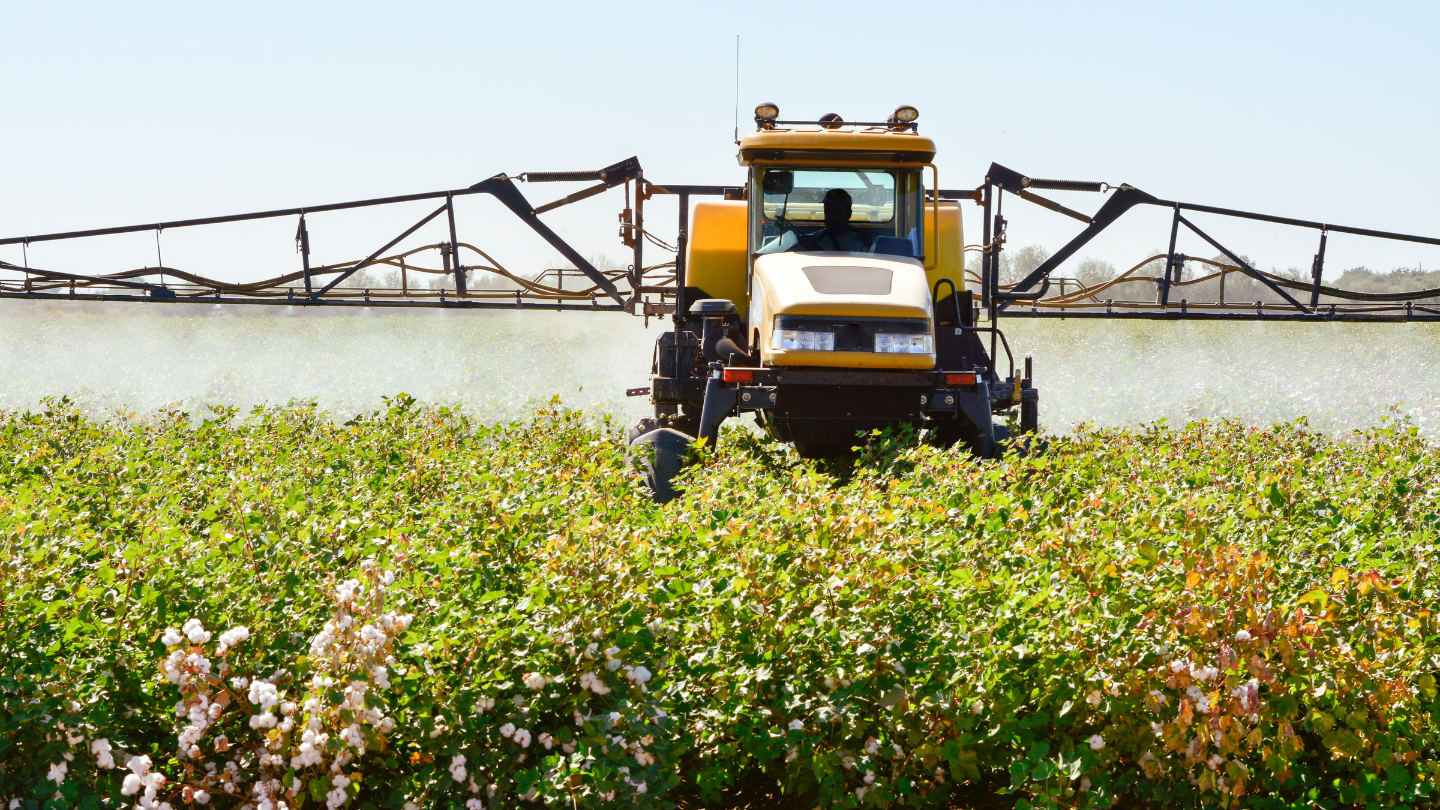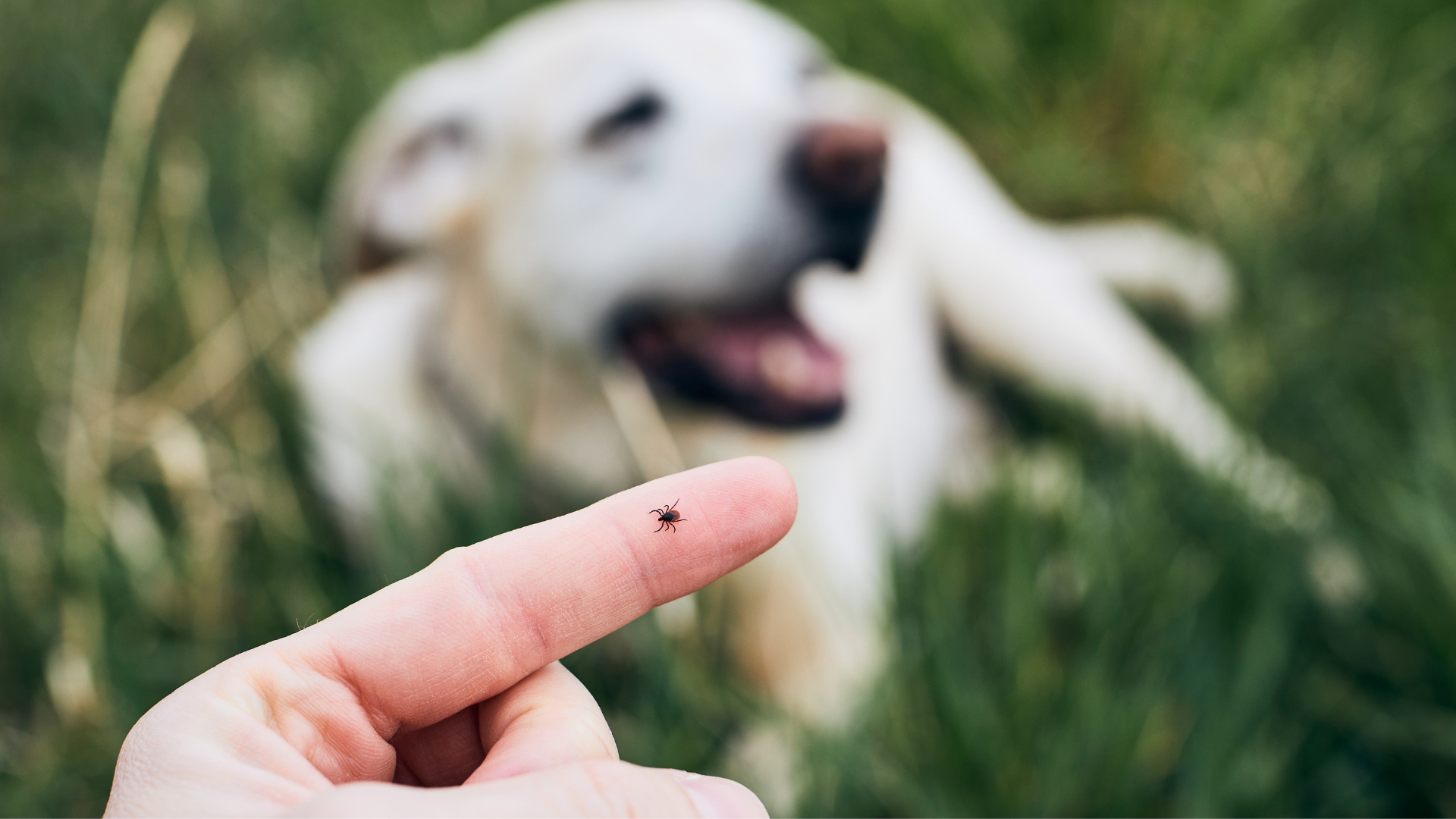AgriSafe Learning
Catalog Advanced Search
-
Contains 3 Component(s) Includes a Live Web Event on 07/24/2025 at 12:00 PM (CDT)
The center of rural communities are farms and those that operate them. But healthy farms and livestock operations need healthy people to care for them and healthy animals that live on them.
Summary: The center of rural communities is farms and those who operate them, but healthy farms and livestock operations need healthy people to care for them and healthy animals that live on them.
Objectives: During this presentation, attendees will learn...
- About diseases that people can give to animals,
- How to keep diseases off of farms and animals healthy, and
- Steps that protect worker health and safety, enabling workers to care for animals
Intended Audience: Owners, operators, and workers of farms, agrotourism businesses, and events that promote agriculture, or those providing education to these groups
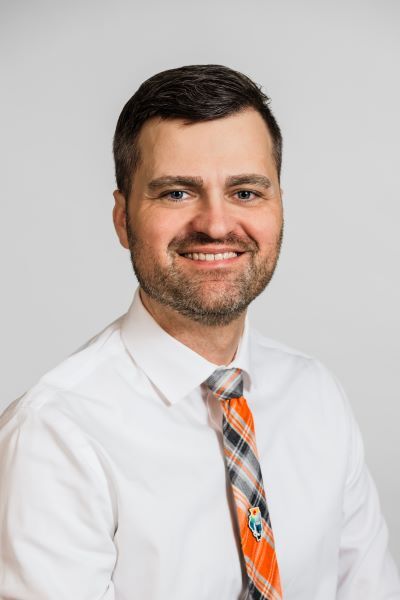
Andrew Hennenfent, DVM, MPH, DACVPM
State Public Health Veterinarian
Iowa Department of Health and Human Services
Dr. Andrew Hennenfent, DVM, MPH, DACVPM, is the State Public Health Veterinarian for Iowa, overseeing zoonotic disease prevention and response. Dr. Hennenfent completed an applied epidemiology fellowship in infectious disease at the District of Columbia Department of Health, then oversaw the city’s emerging and zoonotic disease program and served as the city’s public health veterinarian. After joining the Iowa Department of Health and Human Services, Dr. Hennenfent oversaw the Healthcare Associated Infections (HAI) Program, leading planning and response efforts for antimicrobial stewardship efforts and infection prevention technical assistance provided to Iowa healthcare personnel to improve infection control practices in all settings. Prior to joining Iowa HHS Dr. Hennenfent worked for the Iowa Department of Agriculture and Land Stewardship (IDALS).
-
Register
- Non-member - Free!
- Member - Free!
- More Information
-
Contains 7 Component(s), Includes Credits Includes a Live Web Event on 07/21/2025 at 11:00 AM (CDT)
What is QPR? QPR training teaches laypeople and professionals to recognize and respond to mental health crises using the approach of Question, Persuade and Refer. To attend this training participants must be 18 years of age or older. In this 1.5-hour QPR training, we will provide: Information on the unique challenges farmers face that can lead to stress, depression, and suicide. Examples implementing each QPR component with someone at risk for suicide. Information on how to help someone at risk of suicide. Registration spots are limited, so please only register if you can attend the event. No recording of this training will be available.
What is QPR? QPR training teaches laypeople and professionals to recognize and respond to mental health crises using the approach of Question, Persuade and Refer.
To attend this training participants must be 18 years of age or older.
In this 1.5-hour QPR training, we will provide:
- Information on the unique challenges farmers face that can lead to stress, depression, and suicide.
- Examples implementing each QPR component with someone at risk for suicide.
- Information on how to help someone at risk of suicide.
Registration spots are limited, so please only register if you can attend the event. No recording of this training will be available. Interested in hosting a QPR training session for your organization?
Continuing Education for Community Health Workers: CHW and/or CHW-I CEUs are available through the University of Texas at Tyler Health Science Center, Center for Community & Rural Health Education. See individual courses for additional information.

Continuing Education for Multiple Disciplines: This course is jointly provided by the University of Michigan Center for Occupational Health and Safety Engineering.
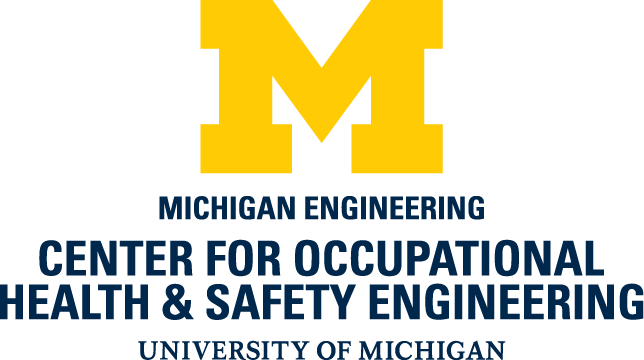
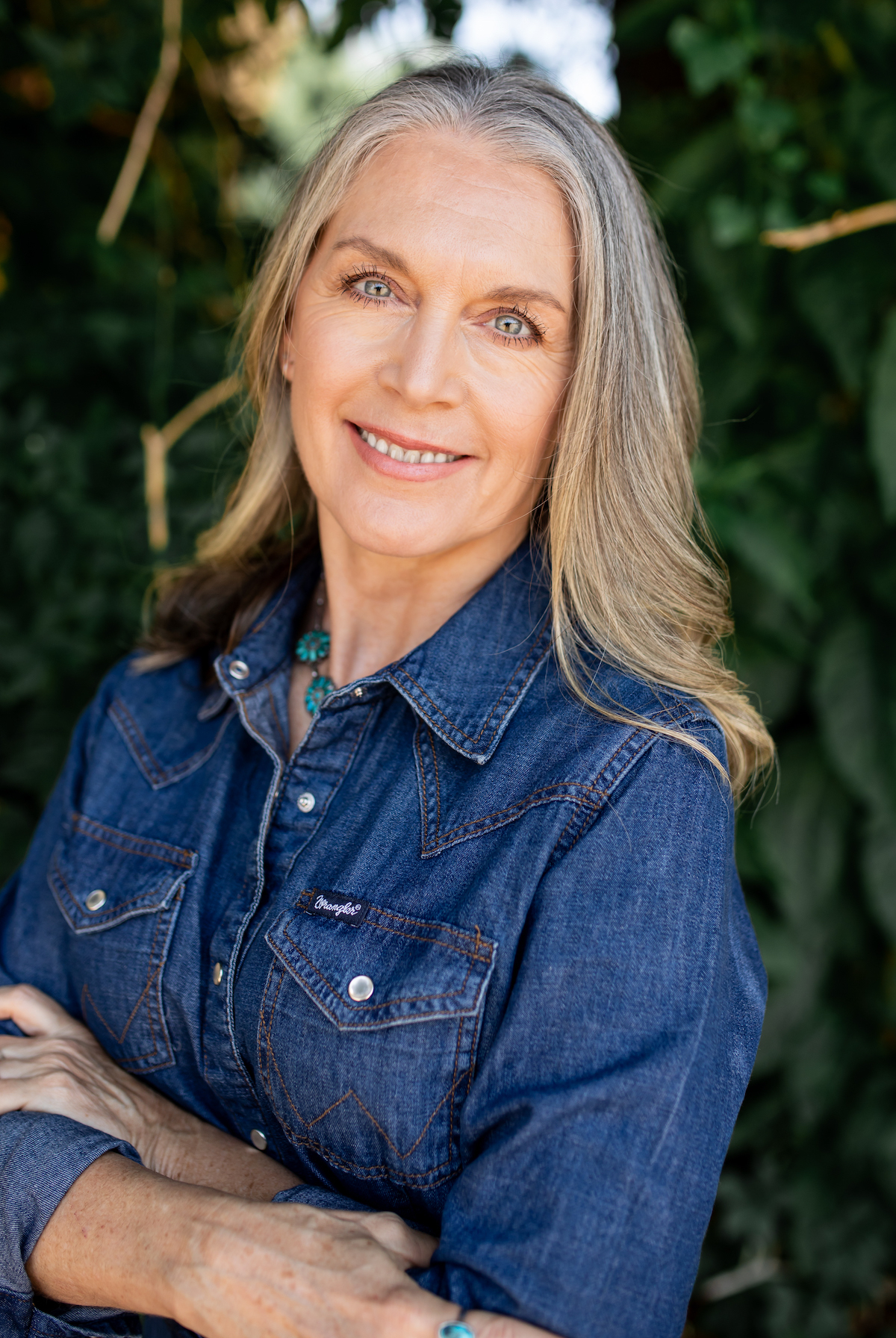
Tara Haskins, DNP, MSN, RN, AHN-BC
Total Farmer Health Director
AgriSafe Network
Dr. Tara Haskins oversees partnerships to support AgriSafe’s Total Farmer Health initiative. She is also responsible for AgriSafe’s mental health programming. Tara contributes to curriculum design and implements new Total Farmer Health trainings that optimize and expand upon existing programs. She collaborates with organizations and government agencies that are interested in using the Total Farmer Health model as a public health framework.
Tara has worked in healthcare as a registered nurse for 37 years with clinical experience in medical surgical, critical care, crisis intervention and opioid and alcohol outpatient treatment. Dr. Haskins worked for 11 years in academia as lead faculty in musculoskeletal and psychiatric mental health nursing content across three universities.

Olivia Bury, MA, PLPC
Behavioral Health Specialist
AgriSafe Network
Olivia is the Behavioral Health Coordinator and lead on suicide prevention training programs at AgriSafe. She received her master's degree in Clinical Mental Health & Guidance in 2022. Olivia providers QPR and CALM trainings that focus on the unique stressors that those in agriculture experience. In addition to her AgriSafe role, Olivia is a provisional licensed counselor. She works part time at a school, where she works with pre-k to middle school students.
-
Register
- Non-member - Free!
- Member - Free!
- More Information
-
Contains 3 Component(s), Includes Credits
"From the Heartland to the Hospital" is an insightful review focusing on the critical period between when a trauma incident occurs and when emergency medical services (EMS) or the patient arrives at the emergency department. This review covers best practices, challenges, and strategies for improving outcomes during this crucial time frame. It will explore topics such as first responder actions, bystander interventions, and the coordination between EMS and hospital teams to ensure timely and effective care.
Summary: "From the Heartland to the Hospital" is an insightful review focusing on the critical period between when a trauma incident occurs and when emergency medical services (EMS) or the patient arrives at the emergency department. This review covers best practices, challenges, and strategies for improving outcomes during this crucial time frame. It will explore topics such as first responder actions, bystander interventions, and the coordination between EMS and hospital teams to ensure timely and effective care.
Objectives: After this training, participants will be able to:
- Understand critical decision-making using the "Risk vs. Benefit" approach
- Review components of the stages of shock
- Solve significant bleeding scenarios
- Review the system of healthcare from the incident to definitive careIntended Audience: Farmers, ranchers, ag producers, farm family members, Extension staff, rural and ag community members, EMS personnel, rural healthcare providers
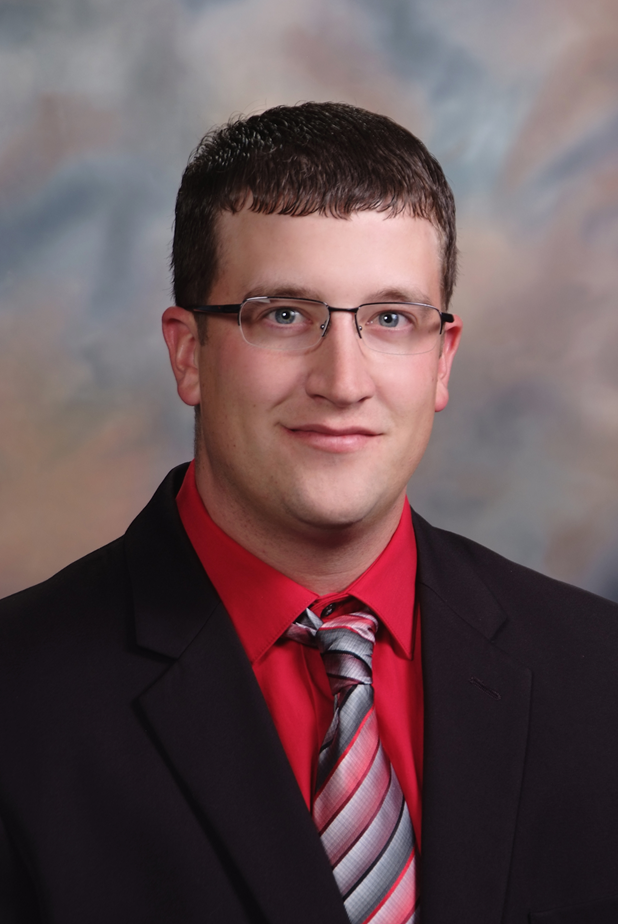
Robby Rhembrandt FP-C, CCP-C, TP-C, C-NPT, CP-C
Founder
Life First Learning
Robby Rhembrandt comes to us with over 20 years of emergency medicine experience. His career has been distinguished by various roles from the Fire Service to Air Medical transport. Robby is among a few select paramedics worldwide who posses four or more board certifications. Spending his whole life in Western Nebraska he understands the crucial dynamic of rural emergency care and treatment.
-
Register
- Non-member - Free!
- Member - Free!
- More Information
-
Register
-
Contains 7 Component(s)
This Train the Trainer course is designed for teachers, Extension staff, 4H and FFA leaders and others who work with young adults. Agricultural producers are at high risk for acquiring a zoonotic disease related to their work environment with minimal information related to risks, symptoms and prevention. The majority of emerging infectious diseases in the U.S. are zoonotic in nature. They are often difficult to determine and many go unreported for a variety of reasons.
This Train the Trainer course is designed for teachers, Extension staff, 4H and FFA leaders and others who work with young adults. Agricultural producers are at high risk for acquiring a zoonotic disease related to their work environment with minimal information related to risks, symptoms and prevention. The majority of emerging infectious diseases in the U.S. are zoonotic in nature. They are often difficult to determine and many go unreported for a variety of reasons.
At the end of the presentation, participants will be able to:
- Define zoonotic disease and identify various modes of transmission;
- Locate recommended educational resources for use in educational programs;
- Discuss warning signs and symptoms of major zoonotic diseases;
- Identify zoonotic diseases affecting the production agricultural population
Invest in Your Health is supported by:
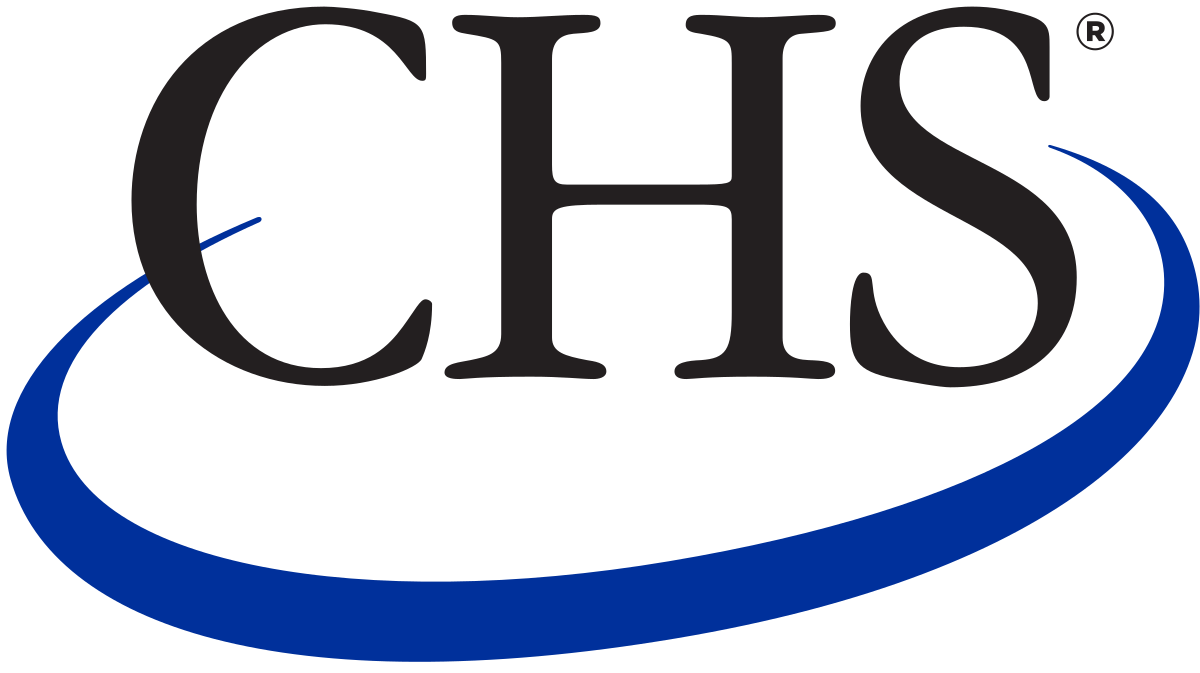
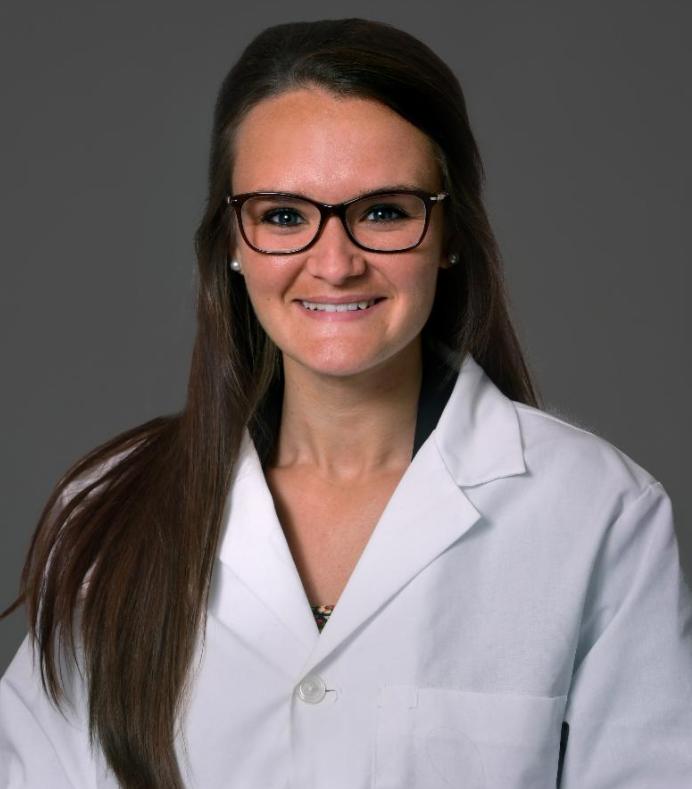
Katelyn Haydett, MS, DVM Candidate, Michigan State University
Katelyn Haydett, MS, DVM Candidate, Michigan State University
Katelyn Haydett has her BS in Molecular Biology from Defiance College, MS in Environmental Toxicology from Texas Tech University, and is currently a DVM candidate at Michigan State University. Her passion for public health began during a water testing project in Tanzania, Africa and has continued to evolve and include research focused on wildlife diseases and vector-borne zoonoses. Katelyn also served as a member of the AgriSafe Young Advisors Council, from 2016-2017. In her role as a rural leader, she assisted AgriSafe in design and launching of educational initiatives that can reduce farm related illness, injury and fatalities.
-
Register
- Non-member - Free!
- Member - Free!
- More Information
-
Contains 40 Component(s)
AgriSafe is offering this Train-the-Trainer series to anyone who works with youth (ages 14-23 years). The series of modules will walk you through 6 target areas and includes an instructor guide after completing each topic.
AgriSafe has developed the Invest in Your Health Trainer Course to certify educators to train on seven modules designed for young adults ages 14-23. AgriSafe provides course instruction and training materials. Once certified, educators will have the freedom to use these materials in their classroom. The ultimate goal is to enhance the capabilities of local agricultural educators, rural health professionals, and rural leaders to train young workers.
Currently, AgriSafe offers seven training modules:
1. Say What? Protecting your Hearing
2. Cover Up! Head to Toe Personal Protective Equipment
3. Stay Cool! Prevention of Heat Related Illness
4. Stop Zoonosis in its Tracks - Prevention of Zoonosis
5. Where Y’at - Using Mapping to Define Hazards in Agriculture
6. Cultivating a Healthy Mind: Mental Wellness for Youth
7. No Safe Way to VapeAgriSafe is using an open share curriculum model to expand access to agricultural safety and health curriculum to a wide range of health and safety instructors including parents, teachers, and employers. This curriculum was created with a classroom audience in mind and has been used in various ways to train youth and new agricultural employees.
Invest in Your Health is supported by:

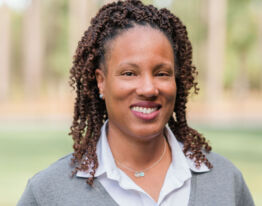
Knesha Rose-Davison, MPH
Public Health and Equity Director
AgriSafe Network
Mrs. Knesha Rose-Davison serves as the Public Health and Equity Director for AgriSafe Network. She has over 17 years of public health experience in maternal and child health, community health, health disparities, and advocacy. In May 2016, she joined AgriSafe Network as their health communications director, quickly growing into their public health programs director, where she managed employer-employee safety training for youth working in agriculture, opioid safety for health providers and agricultural workers, and women’s health topics. Knesha obtained her Bachelor of Science in Biological Sciences (2002) and a Master of Public Health (2006) from Northern Illinois University. In June 2016, she obtained a certificate in Agricultural Medicine focused on rural occupational health, environmental health, and safety. She is a member of the American Public Health Association and the Louisiana Public Health Association, where she serves in leadership. Knesha is passionate about serving vulnerable populations and ensuring health access and equity, and she aligns all her work with these causes.
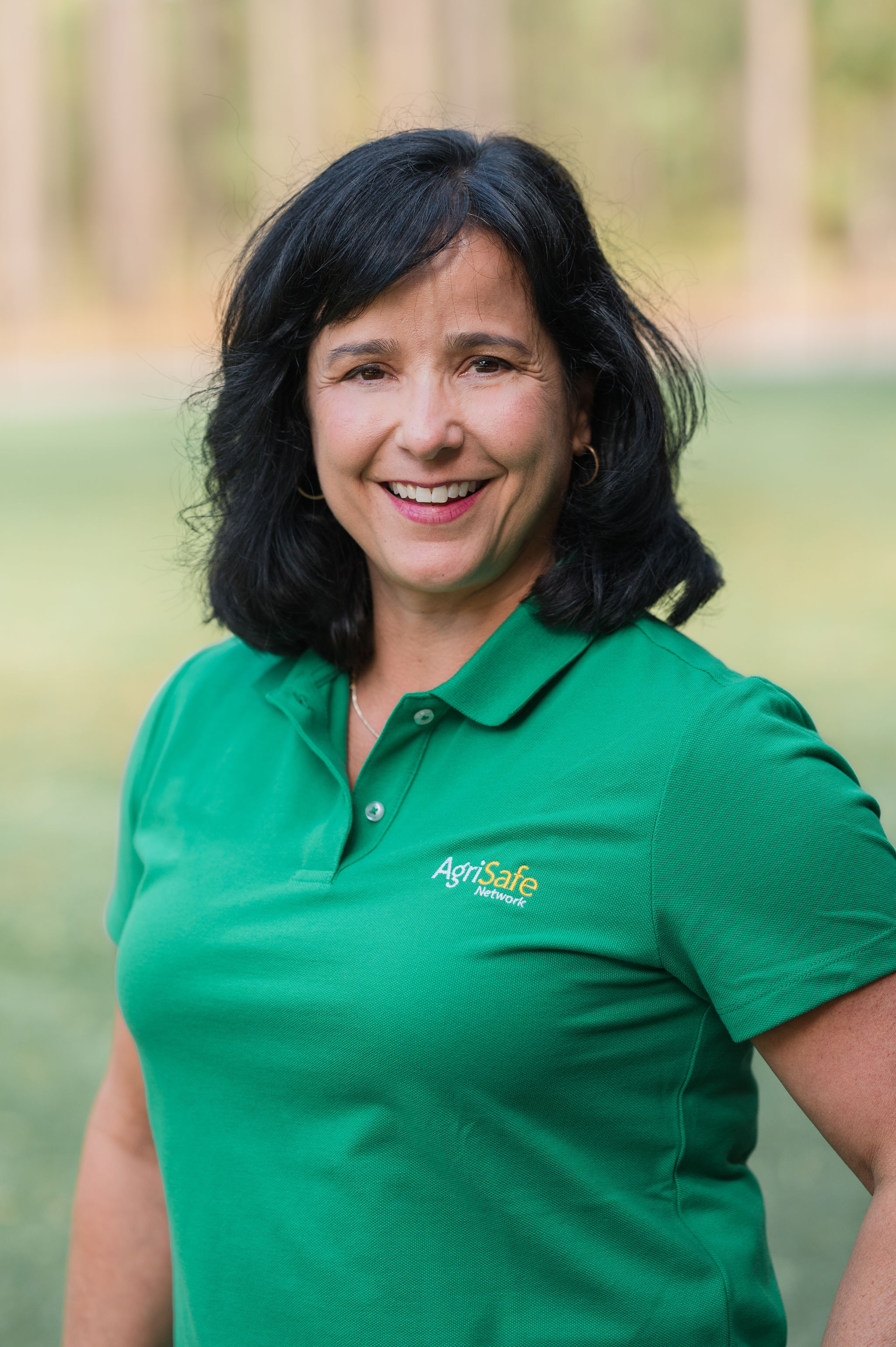
Natalie Roy, MPH
Chief Executive Officer
AgriSafe Network
As Chief Executive Officer of AgriSafe for over twenty years, Natalie Roy utilizes her public health training to improve the quality of health care offered to farm families. Natalie holds a Masters in Public Health from Tulane University. She is pleased to work in the area of agricultural health as it relates to her experience growing up on a farm in Canterbury New Hampshire.

Tara Haskins, DNP, MSN, RN, AHN-BC
Total Farmer Health Director
AgriSafe Network
Dr. Tara Haskins oversees partnerships to support AgriSafe’s Total Farmer Health initiative. She is also responsible for AgriSafe’s mental health programming. Tara contributes to curriculum design and implements new Total Farmer Health trainings that optimize and expand upon existing programs. She collaborates with organizations and government agencies that are interested in using the Total Farmer Health model as a public health framework.
Tara has worked in healthcare as a registered nurse for 37 years with clinical experience in medical surgical, critical care, crisis intervention and opioid and alcohol outpatient treatment. Dr. Haskins worked for 11 years in academia as lead faculty in musculoskeletal and psychiatric mental health nursing content across three universities.

Marjorie McCullagh, PhD, RN, PHNA-BC, COHN-S, FAAOHN, FAAN
Professor and Occupational Health Nursing Program Director, University of Michigan School of Nursing
Marjorie McCullagh is Professor Emerita of Nursing at the University of Michigan. She is, first and foremost, a nurse. She has worked in a number of clinical roles in hospital acute and critical care units, and has focused much of her career on promoting and protecting the health of a critical segment of our nation’s workforce: ag producers. As a public health nurse and researcher, much of her work has been in developing and testing new programs to help farmers stay safe and healthy. She has published in many professional journals, and has presented her work nationally and internationally.
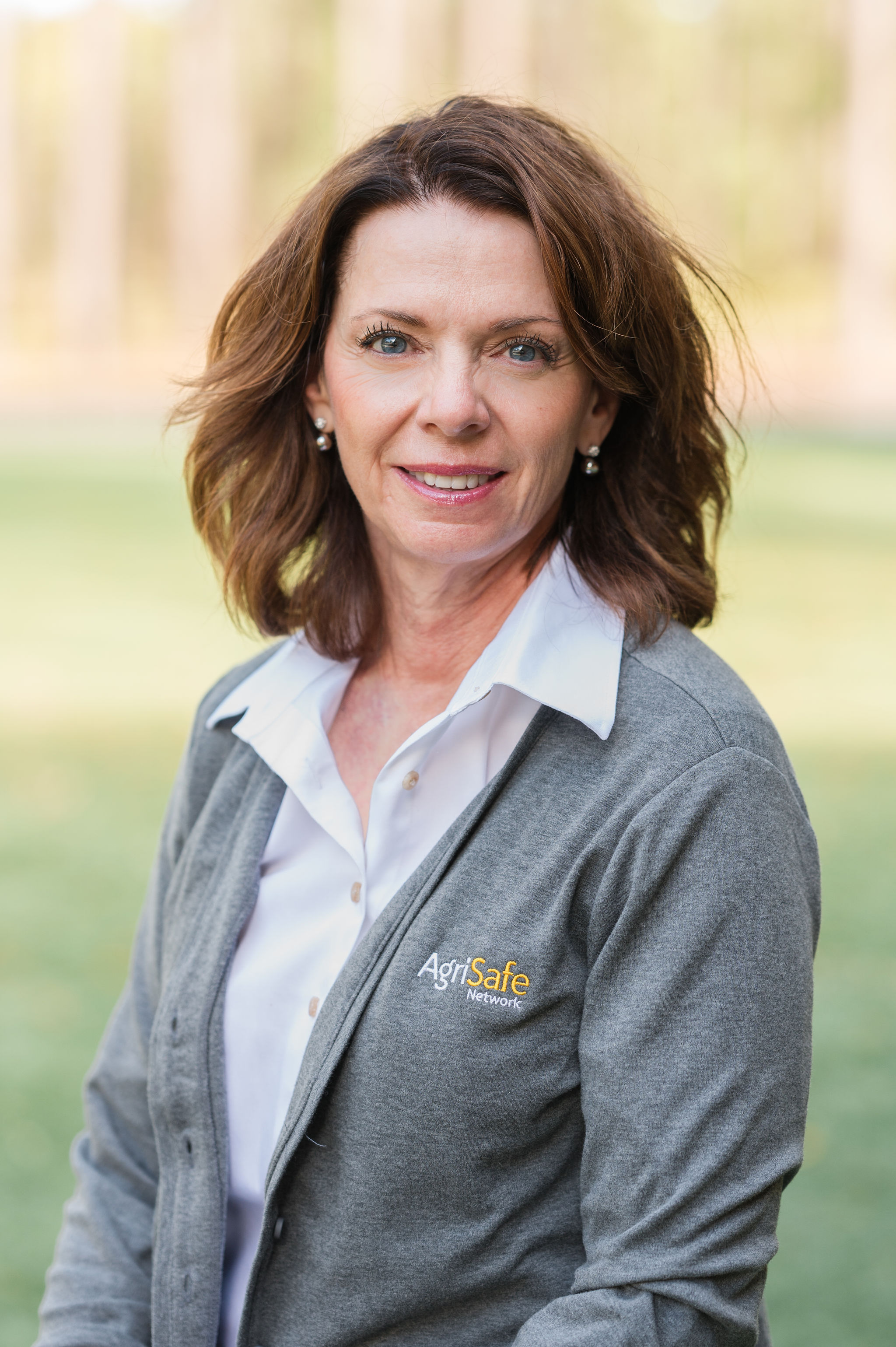
Linda Emanuel, BSN, RN
Community Health Liaison
AgriSafe Network
Shaped by Linda’s experience as a Registered Nurse working in rural communities as well as her proprietorship of a three generational Nebraska family farm, Linda naturally connects as an advocate and educator with agriculture producers and health care professionals. As the Community Health Director of the AgriSafe Network, she is responsible for curriculum design and outreach for the Veteran Farmer program, Total Farmer Health Coach program, and Women’s health. Her work is promoted on a state, regional and national level through webinars, onsite presentations, publications as well as user-friendly resources. Her passion to support the total farmer health concept drives her to act as a liaison between research and practice.
Linda has a diverse background in acute care nursing, intensive care, pediatrics, home health care, and rural primary care clinics. She is an AgriSafe Nurse Scholar, and a Nebraska LEAD fellow. She belongs to the American Nurses Association, Rural Nurses Organization, and Nebraska Nurses Association. She and her husband own and operate a row crop farming operation that has welcomed back their sons and families to continue a legacy.

Katelyn Haydett, MS, DVM Candidate, Michigan State University
Katelyn Haydett, MS, DVM Candidate, Michigan State University
Katelyn Haydett has her BS in Molecular Biology from Defiance College, MS in Environmental Toxicology from Texas Tech University, and is currently a DVM candidate at Michigan State University. Her passion for public health began during a water testing project in Tanzania, Africa and has continued to evolve and include research focused on wildlife diseases and vector-borne zoonoses. Katelyn also served as a member of the AgriSafe Young Advisors Council, from 2016-2017. In her role as a rural leader, she assisted AgriSafe in design and launching of educational initiatives that can reduce farm related illness, injury and fatalities.
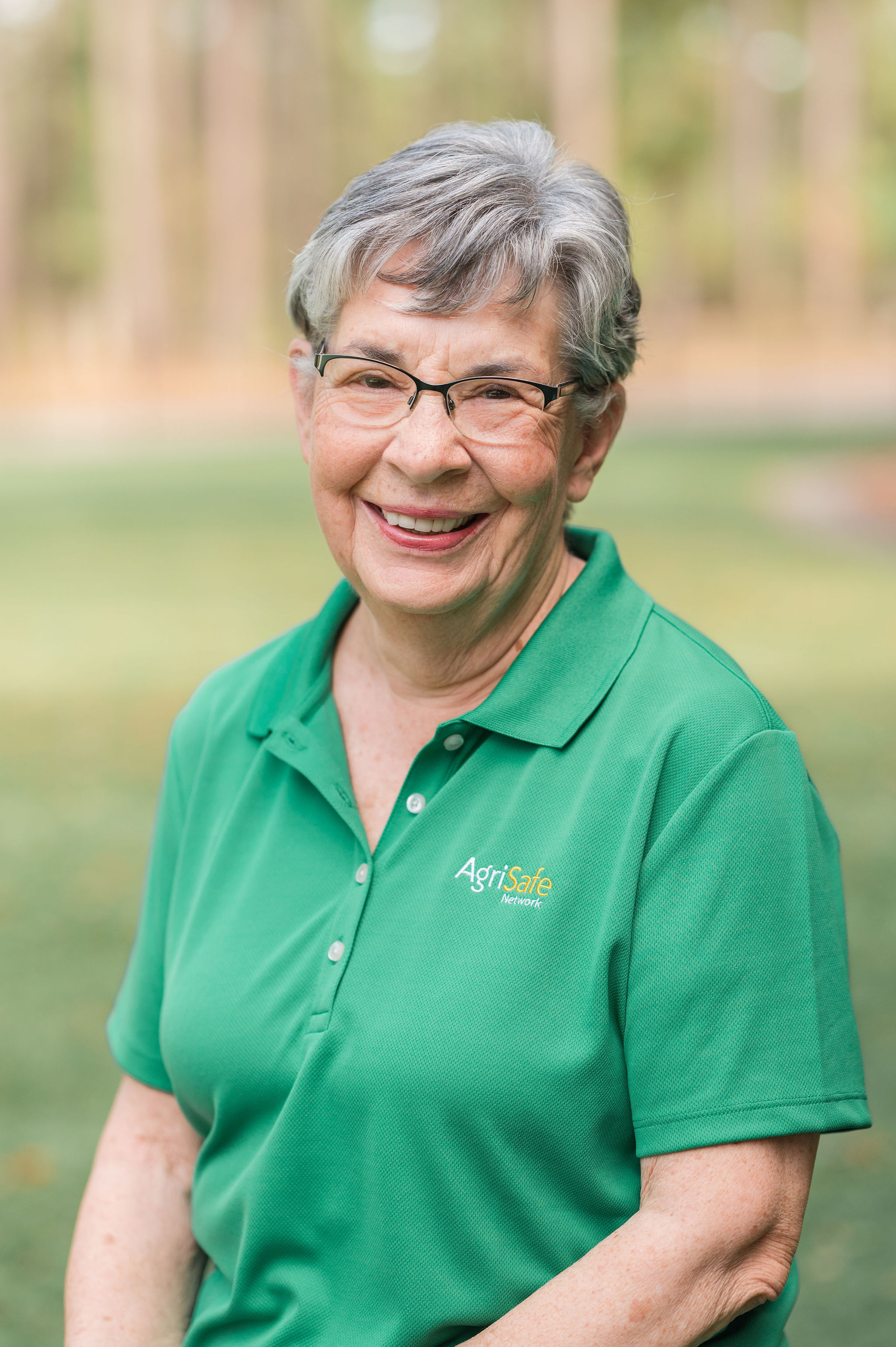
Charlotte Halverson, RN, BSN, COHN-S
Total Farmer Health Coach, AgriSafe Network
Charlotte served as the Clinical Director for AgriSafe thru the end of 2022 and is currently a Total Farmer Health Coach. Prior to this role, she worked for several years in hospital acute care settings and community education. During those years, Charlotte developed and managed a Rural Outreach Health service and a Parish Health Ministry department serving nine counties in northeast Iowa. She is a "charter graduate" of the University of IA agricultural occupational medicine course, is certified in occupational hearing conservation and completed the NIOSH Spirometry training. From 1997 to 2013, she provided agricultural occupational health services and program development for the National Education Center for Agricultural Safety.
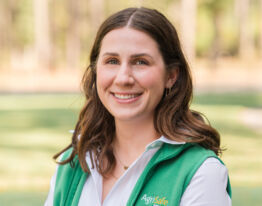
Abigail Kahrs, MPH
Program Coordinator
AgriSafe Network
Abigail Kahrs is the Program Coordinator for AgriSafe. She holds a bachelor’s degree in Animal Science as well as a Master’s in Public Health. She organizes, and coordinates educational opportunities and resources for farmers, farm labor contractors, farm workers, and their families on issues associated with health and work safety (pesticide safety, weather protection, and other occupational hazards) as well as overall agricultural worker family well-being. She primarily assists in the scheduling, training, and reporting of women’s health, infectious diseases, and youth safety programs at AgriSafe Network.
-
Register
- Non-member - Free!
- Member - Free!
- More Information
-
Register
-
Contains 3 Component(s), Includes Credits
Farming is one of the most dangerous occupations but also one of the most stressful. Yet, we often hear that farmers work through injuries, illnesses, or burnout even though doing so can delay recovery and in some cases, worsen their condition. In this webinar, Florence Becot from Pennsylvania State University and Andy Bater a member of the Pennsylvania Farm Bureau Board and of the AgriSafe Diversity, Equity, Inclusion, and Accessibility (DEIA) Advisory Council, will discuss why farmers continue working despite health challenges and highlight the importance of developing substitute labor solutions to support farmers’ well-being and farm business viability. As an example of a long-established model, Julien Deroo and Karim Cheurfa Molinier will present the French substitute farmer program, la “Fédération des Services de Remplacement”. Started 50 years ago, this network of 300 non-profit organizations across France serves a dual purpose. First, it provides substitute labor so that work on the farm can continue while farmers regain their health as well as when they need to be away from the farm for other purposes. Second, it serves as a workforce development platform for the agricultural sector as many of the substitute farmers earn practical experience in addition to their school training and/or already have hands-on farming experience. Created by farmers for farmers and managed by them through a mix of funding sources, its membership includes 67,000 farmer members (15% of the farming population in France) and 15,000 substitute farmers, and it has facilitated the substitution of 5 million work hours on farms last year. Agnes Papone, a farmer and elected representative of a “Service de Remplacement” in the southeast of France, will then share her family’s experience using the program. We will leave time for an interactive discussion with the audience about opportunities and challenges to develop substitute farmer programs in the U.S.
Summary: Farming is one of the most dangerous occupations but also one of the most stressful. Yet, we often hear that farmers work through injuries, illnesses, or burnout even though doing so can delay recovery and in some cases, worsen their condition. In this webinar, Florence Becot from Pennsylvania State University and Andy Bater a member of the Pennsylvania Farm Bureau Board will discuss why farmers continue working despite health challenges and highlight the importance of developing substitute labor solutions to support farmers’ well-being and farm business viability. As an example of a long-established model, Julien Deroo and Karim Cheurfa Molinier will present the French substitute farmer program, la “Fédération des Services de Remplacement”. Started 50 years ago, this network of 300 non-profit organizations across France serves a dual purpose. First, it provides substitute labor so that work on the farm can continue while farmers regain their health as well as when they need to be away from the farm for other purposes. Second, it serves as a workforce development platform for the agricultural sector as many of the substitute farmers earn practical experience in addition to their school training and/or already have hands-on farming experience.
Created by farmers for farmers and managed by them through a mix of funding sources, its membership includes 67,000 farmer members (15% of the farming population in France) and 15,000 substitute farmers, and it has facilitated the substitution of 5 million work hours on farms last year. Agnes Papone, a farmer and elected representative of a “Service de Remplacement” in the southeast of France, will then share her family’s experience using the program. We will leave time for an interactive discussion with the audience about opportunities and challenges to develop substitute farmer programs in the U.S.
Intended Audience: Farmer health and safety professionals, AgrAbility and FRSAN programs, CDC NIOSH Ag centers, researchers, representatives of farmer organizations, state and federal agencies of agriculture, staffers of legislators on agricultural committees
Objectives: At the end of the webinar, participants will be able to…
- Discuss factors impacting farmers’ ability to take time off to recover from health-related challenges.
- Describe the long-established French substitute farmer program to support farmers’ well-being and their farm operation’s viability. This includes how its goals, structure, and funding mode.
- Discuss opportunities and challenges to develop labor substitute programs in the U.S.
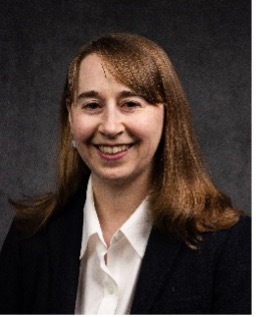
Florence Becot, PhD, MS
Rural Sociologist, Nationwide Insurance Early Career Professor in Agricultural Safety and Health
Pennsylvania State University
Florence Becot, PhD, MS, is a rural sociologist and the Nationwide Insurance Early Career Professor in Agricultural Safety and Health at the Pennsylvania State University. She also leads the Penn State Agricultural Safety and Health Program (ASH). Broadly speaking, her integrated research-extension program is intended to understand and support agricultural communities’ ability to meet their needs with an emphasis on their health, safety, well-being, and economic viability. Florence has done research and innovative solutions to support farm families’ social and economic needs in the U.S. and France.

Andy Bater
Board Director
Pennsylvania Farm Bureau District 6 Board
Andy Bater, a fourth-generation farmer, serves on the Pennsylvania Farm Bureau State Board and chairs its Wildlife and Fisheries Committee. He also advises the Pennsylvania Food Policy Council and serves on the USDA Farm Service Agency State Committee. With over 25 years of experience in communications engineering, he coordinated industry recovery operations following 9/11 and oversaw facility restorations after Hurricane Katrina. He contributes to national technology policy through the FCC’s Precision Agriculture Task Force and the Commerce Spectrum Management Advisory Committee. Dedicated to well-being, Andy is a registered yoga instructor and collaborates with the AgriSafe Network to promote universal farmer access to healthcare. Most recently he has embarked on a One Health initiative with Penn State’s Colleges of Medicine and Nursing.
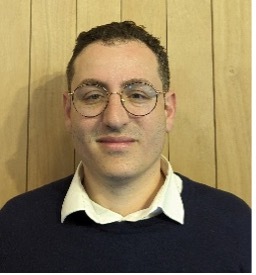
Karim Cheurfa Molinier, MS
Advisor
Service de Remplacement France
Holder of a DEA (equivalent master’s degree) in International Security and Defense, Karim Cheurfa Molinier began his career in Europe, notably at the French Embassy in Norway and the Generalitat Valenciana in Spain. ten years ago, he joined Service de Remplacement France as an advisor to support the development of structures. His role includes network support, representation with public authorities, and the management of key projects for the network, such as the creation of an ERP dedicated to the operation of the structures. He also leads communication projects, including a serious game.

Julien Deroo
Project Manager
Service de Remplacement France
With an academic background in geography, Julien has worked on issues related to the attractiveness and development of rural areas in France in the post-COVID context. For the past year and a half, Julien has been working as a project manager at Service de Remplacement France, leading initiatives to improve working conditions, enhance professional skills, and make the farmer substitute profession more attractive.

Agnès Papone
Voluntary Secretary General
Service de Remplacement France
Agnes started an organic and regenerative farm operation in the southern French Alps in 2010 with her husband, Renaud. They took an abandoned family farm, brought it back to life and into production as a lifestyle change from a background in Public Health research in HIV prevention science with the University of California -LA in South Africa. In 2019, Renaud suffered from a work-related burn-out and needed to radically rest and recover for an extended period. As longstanding members of the “Service de Replacement”, the substitute labor program which was invaluable in providing labour, advice, and moral support to help overcome and weather the storm. Agnès has been the “Service de Remplacement” voluntary secretary general (board member) since 2020 and as such has trained in suicide prevention/watch and first aid for mental health.
-
Register
- Non-member - Free!
- Member - Free!
- More Information
-
Contains 3 Component(s)
For producers, spotting the first signs of a possible avian influenza outbreak can bring on a flood of stress, worry, and tough decisions. The emotional toll — before, during, and after flock depopulation — is real, and it affects everyone involved. So how do we recognize when someone’s struggling with all of this? And maybe more importantly, how do we show up for them — as coworkers and team members?
For producers, spotting the first signs of a possible avian influenza outbreak can bring on a flood of stress, worry, and tough decisions. The emotional toll — before, during, and after flock depopulation — is real, and it affects everyone involved. So how do we recognize when someone’s struggling with all of this? And maybe more importantly, how do we show up for them — as coworkers and team members?
In this webinar, we’ll talk about how to support each other through the mental and emotional challenges that come with avian influenza outbreaks. We’ll walk through some simple strategies that individuals and teams can use, and introduce a helpful tool designed to guide those conversations and check-ins. Extra resources will be provided that you can lean on, whether you’re going through it yourself or helping someone else.
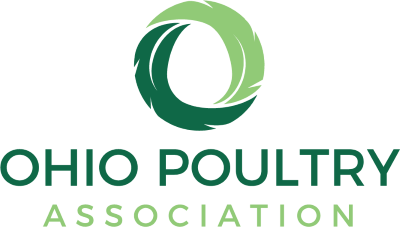
AgriSafe gratefully acknowledges the Ohio Poultry Association for supporting this learning opportunity. 
Tara Haskins, DNP, MSN, RN, AHN-BC
Total Farmer Health Director
AgriSafe Network
Dr. Tara Haskins oversees partnerships to support AgriSafe’s Total Farmer Health initiative. She is also responsible for AgriSafe’s mental health programming. Tara contributes to curriculum design and implements new Total Farmer Health trainings that optimize and expand upon existing programs. She collaborates with organizations and government agencies that are interested in using the Total Farmer Health model as a public health framework.
Tara has worked in healthcare as a registered nurse for 37 years with clinical experience in medical surgical, critical care, crisis intervention and opioid and alcohol outpatient treatment. Dr. Haskins worked for 11 years in academia as lead faculty in musculoskeletal and psychiatric mental health nursing content across three universities.

Linda Emanuel, BSN, RN
Community Health Liaison
AgriSafe Network
Shaped by Linda’s experience as a Registered Nurse working in rural communities as well as her proprietorship of a three generational Nebraska family farm, Linda naturally connects as an advocate and educator with agriculture producers and health care professionals. As the Community Health Director of the AgriSafe Network, she is responsible for curriculum design and outreach for the Veteran Farmer program, Total Farmer Health Coach program, and Women’s health. Her work is promoted on a state, regional and national level through webinars, onsite presentations, publications as well as user-friendly resources. Her passion to support the total farmer health concept drives her to act as a liaison between research and practice.
Linda has a diverse background in acute care nursing, intensive care, pediatrics, home health care, and rural primary care clinics. She is an AgriSafe Nurse Scholar, and a Nebraska LEAD fellow. She belongs to the American Nurses Association, Rural Nurses Organization, and Nebraska Nurses Association. She and her husband own and operate a row crop farming operation that has welcomed back their sons and families to continue a legacy.
-
Register
- Non-member - $30
- Member - Free!
- More Information
-
Register
-
Contains 5 Component(s), Includes Credits
Overdose deaths are a leading cause of injury-related death in the United States and the majority of overdose deaths involve opioids. This epidemic is impacting communities all across the country. Naloxone is a life-saving medication that can reverse an overdose from opioids when given in time. This session is designed to prepare communities and non-medical public and safety professionals to recognize and respond to an opioid overdose. Participants will learn the warning signs of opioid overdose and how to intervene safely using naloxone.
Summary: Overdose deaths are a leading cause of injury-related death in the United States and the majority of overdose deaths involve opioids. This epidemic is impacting communities all across the country. Naloxone is a life-saving medication that can reverse an overdose from opioids when given in time. This session is designed to prepare communities and non-medical public and safety professionals to recognize and respond to an opioid overdose. Participants will learn the warning signs of opioid overdose and how to intervene safely using naloxone.
Objectives: At the end of this webinar participants will be able to...
- Identify risk factors for opioid intentional and nonintentional overdose
- Recognize the signs of opioid overdose
- Respond effectively to an opioid overdose
- Correctly administer intranasal naloxone
Intended Audience: All communities, academia, workplace employers and employees
Continuing Education for Multiple Disciplines: This course is jointly provided by the University of Michigan Center for Occupational Health and Safety Engineering.

Community Health Workers: This program provides 1.0 Hour of DSHS-certified CHW CEUs (0.25 hr., Communication Skills; 0.25 hr., Interpersonal Skills; 0.25 hr., Teaching Skills; and 0.25 hr., Knowledge Based on Specific Health Issues).


Tara Haskins, DNP, MSN, RN, AHN-BC
Total Farmer Health Director
AgriSafe Network
Dr. Tara Haskins oversees partnerships to support AgriSafe’s Total Farmer Health initiative. She is also responsible for AgriSafe’s mental health programming. Tara contributes to curriculum design and implements new Total Farmer Health trainings that optimize and expand upon existing programs. She collaborates with organizations and government agencies that are interested in using the Total Farmer Health model as a public health framework.
Tara has worked in healthcare as a registered nurse for 37 years with clinical experience in medical surgical, critical care, crisis intervention and opioid and alcohol outpatient treatment. Dr. Haskins worked for 11 years in academia as lead faculty in musculoskeletal and psychiatric mental health nursing content across three universities.
-
Register
- Non-member - Free!
- Member - Free!
- More Information
-
Contains 3 Component(s)
There is growing concern over the role of environmental and occupational exposures in rising cancer rates in Iowa and across the country. People employed in agriculture and related industries in rural areas may face unique environmental and occupational exposures, besides genetic and behavioral risk factors, that can cause cancer. Rural barriers to accessing healthcare may compound the effects of environmental and occupational exposures in these settings. Understandable and actionable risk communications can help address existing rural cancer disparities. In this presentation, Audrey Tran Lam, Environmental Health Program Director at the University of Northern Iowa's Center for Energy and Environmental Education, and Caroline Powell, Environmental Outreach Coordinator at the Iowa Cancer Consortium, will provide tips on how to integrate evidence-based environmental health and cancer prevention information into rural and agricultural work. Participants will learn how to better communicate risk, answer questions, and strengthen environmental health literacy in their communities.
Summary: There is growing concern over the role of environmental and occupational exposures in rising cancer rates in Iowa and across the country. People employed in agriculture and related industries in rural areas may face unique environmental and occupational exposures, besides genetic and behavioral risk factors, that can cause cancer.
Rural barriers to accessing healthcare may compound the effects of environmental and occupational exposures in these settings. Understandable and actionable risk communications can help address existing rural cancer disparities. In this presentation, the presenters will provide tips on how to integrate evidence-based environmental health and cancer prevention information into rural and agricultural work. Participants will learn how to better communicate risk, answer questions, and strengthen environmental health literacy in their communities.
Intended Audience: Individuals with an interest in rural and agricultural communities are encouraged to attend.
Objectives: At the end of the webinar, participants will be able to…
- Define environmental health literacy and its role in community health promotion and advocacy.
- Identify evidence-based resources on environmental factors that can increase cancer risk in an agricultural setting and apply them to your own health and safety education materials.
- Find the overlap in goals and communication strategies between cancer control and agricultural safety and health professionals

Caroline Powell, BA, MS Candidate University of Iowa
Environmental Outreach Coordinator
Iowa Cancer Consortium
Caroline Powell is the Environmental Outreach Coordinator at the Iowa Cancer Consortium and the staff lead for the Cancer & the Environment Task Force. Originally from New York City, the CDC’s Public Health Associate Program brought her to the Iowa Cancer Consortium, and she is now an MS student in Agricultural Safety & Health at the University of Iowa. Through her work, she aims to improve environmental and occupational health and safety outreach and communication for equitable disease prevention and health promotion.

Audrey E. Tran Lam, MPH
Environmental Health Program Director
UNI Center for Energy & Environmental Education
Since 2017, Audrey has led the CEEE's environmental health initiatives, working where human health and environmental sustainability meet. Her focus area explores the overlap of agricultural practices and their impact on human health. She holds a masters degree in Public Health from the University of Iowa, and a graduate certificate from Johns Hopkins Bloomberg School of Public Health in Food Systems, the Environment, and Public Health.
In addition to her work at the CEEE, Audrey serves on the board of the Pesticide Action & Agroecology Network, as well as on the Executive Committee for the Cancer Free Economy Network and Design Team for Green America’s Soil & Climate Alliance. She holds advisory board positions for the Center for Health Effects of Environmental Contamination, the Collaborative for Health and Environment, and the University of Iowa’s Environmental Health Sciences Research Center Community Engagement Core.
-
Register
- Non-member - Free!
- Member - Free!
- More Information
-
Contains 4 Component(s), Includes Credits
For centuries, zoonotic diseases have impacted humans in many ways. This presentation will focus on vector borne pathogens by discussing the vectors and trends with geographic distribution, temperature effects, and habitat management since the late 1890’s through today and potential future impacts. We are seeing in real time, the expansion of geographic range of certain tick and mosquito species. Between climate changes and globalized travel, the etiology of spread is sometimes clear but can also be difficult to diagnose. As the world has changed and continues to change, zoonotic diseases remain impactful.
Summary: For centuries, zoonotic diseases have impacted humans in many ways. This presentation will focus on vector-borne pathogens by discussing the vectors and trends with geographic distribution, temperature effects, and habitat management since the late 1890’s through today and potential future impacts. We are seeing in real time, the expansion of geographic range of certain tick and mosquito species. Between climate changes and globalized travel, the etiology of spread is sometimes clear but can also be difficult to diagnose. As the world has changed and continues to change, zoonotic diseases remain impactful.
Objectives: At the end of the webinar, participants will be able to...
- Identify historical trends and issues with vector-borne and other zoonotic diseases.
- Summarize One Health concepts and applications to zoonotic pathogens.
- Identify issues and solutions for vector-borne disease prevention in underserved populations.
Intended audience: Physicians, veterinarians, nurses, public health, epidemiologists, general public
Brent Moore, DVM, MS, MPH, DACVPM
Regional Zoonosis Control Veterinarian
Texas Department of State Health Services, Public Health Region 4/5 North
Dr. Brent Moore completed his undergraduate studies at Northwestern Oklahoma State University, his MS and DVM at Oklahoma State University, and his MPH from the University of Florida. He earned board certification by the American College of Veterinary Preventative Medicine in 2016. After graduating veterinary school in 2006, he worked in small animal veterinary practice in Florida for 14 years prior to joining the DSHS Region 4/5N as a regional Zoonosis Control Veterinarian in February 2020. While in practice, he also volunteered time to the Hernando County Animal Services in Florida, managing disease outbreaks and implementing infection control practices. He was an adjunct professor in Microbiology for the last 3 years prior to moving to Texas. Since 2024, he has lectured zoonotic infectious diseases with the University of Texas at Tyler College of Medicine. Since 2021, he has lectured for the DSHS Preventative Medicine residency program, since 2022, the UT-Tyler Occupational Health residency program, and 2024, the UT-Tyler Preventative Medicine residency program. During his 6 years as an MS and DVM student, he worked in at the Oklahoma Animal Disease Diagnostic Laboratory as a research assistant and laboratory technologist in Serology, Virology, Bacteriology, and Mycology, which expanded his interests in public health and infectious diseases. Dr. Moore’s professional interests include surveillance of vector-borne diseases, tracking risks and trends of Brucella suis, and education.
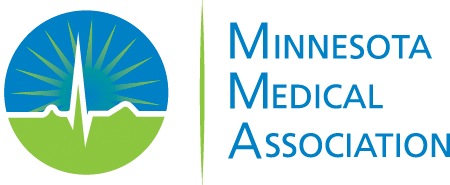
This activity has been planned and implemented in accordance with the accreditation requirements and policies of the Accreditation Council for Continuing Medical Education (ACCME) through the joint providership of the Minnesota Medical Association and AgriSafe Network. The Minnesota Medical Association (MMA) is accredited by the Accreditation Council for Continuing Medical Education to provide continuing medical education for physicians.
The Minnesota Medical Association designates this live activity for a maximum of 1 AMA PRA Category 1 Credit™. Physicians should claim only the credit commensurate with the extent of their participation in the activity.

The University of Cincinnati, Department of Environmental and Public Health Sciences, Education and Research Center offers contact hours for this activity. Upon completing the evaluation, learners will receive a certificate of completion. This course can meet continuing education requirements for a variety of professionals including:
- BGC criteria for IH/CIH professionals; https://gobgc.org/
- BCSP criteria for safety professionals; https://www.bcsp.org/recertification/
- CPH criteria for public health professionals; https://www.nbphe.org/certified-in-public-health/cph-recertification/
Please contact your accrediting agency regarding questions about receiving credits for this activity.
-
Register
- Non-member - Free!
- Member - Free!
- More Information
Quick Search
Technical Difficulties
Submit a help ticket if you need technical assistance.
Having Computer Issues? Please check your internet browser and security settings to allow permissions for this website. Browsers: Microsoft Edge version 40 or higher; Chrome version 60 or higher, Firefox version 50 or higher; or Safari version 10.1 or higher. We recommend using Google Chrome or Firefox as your browser.
